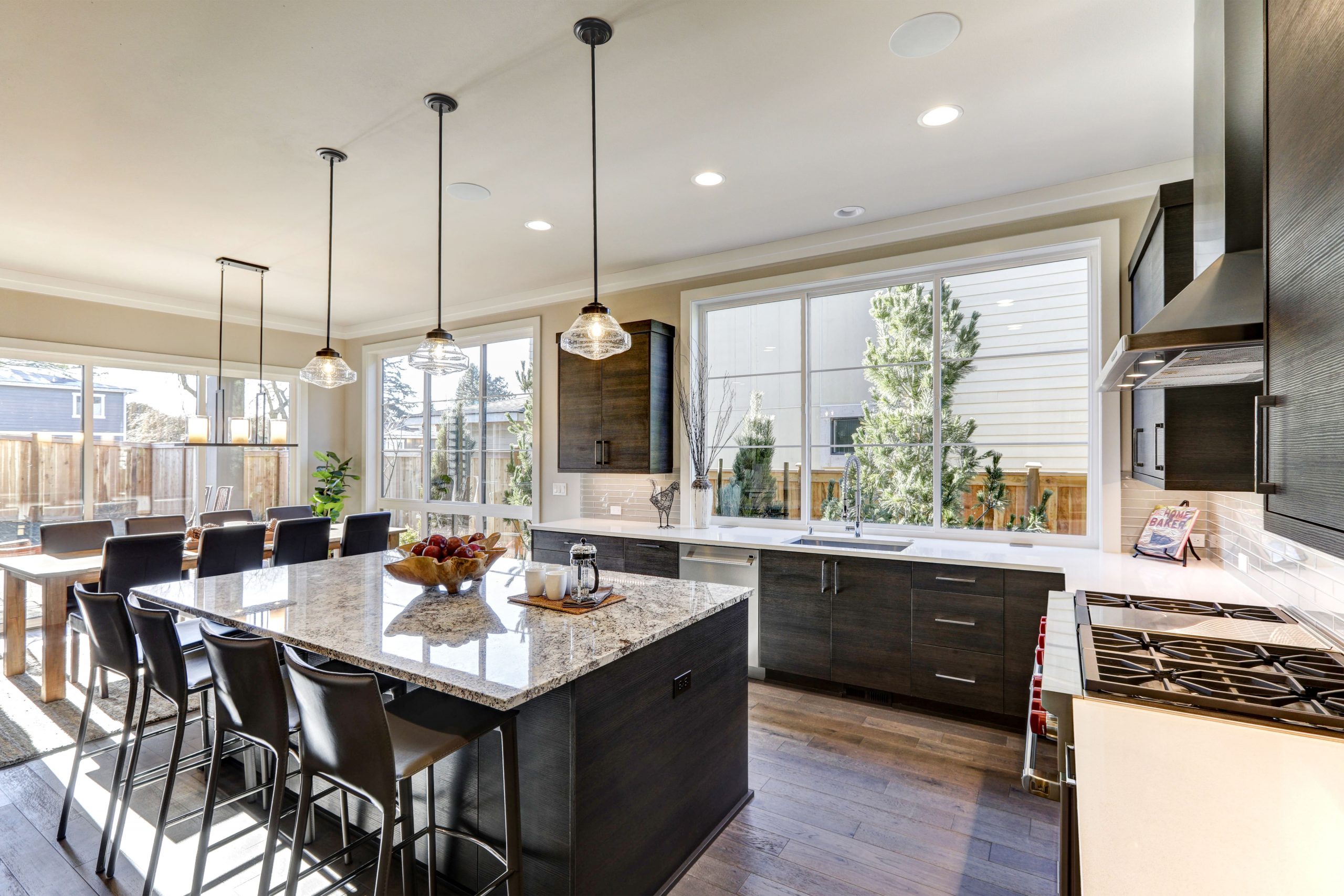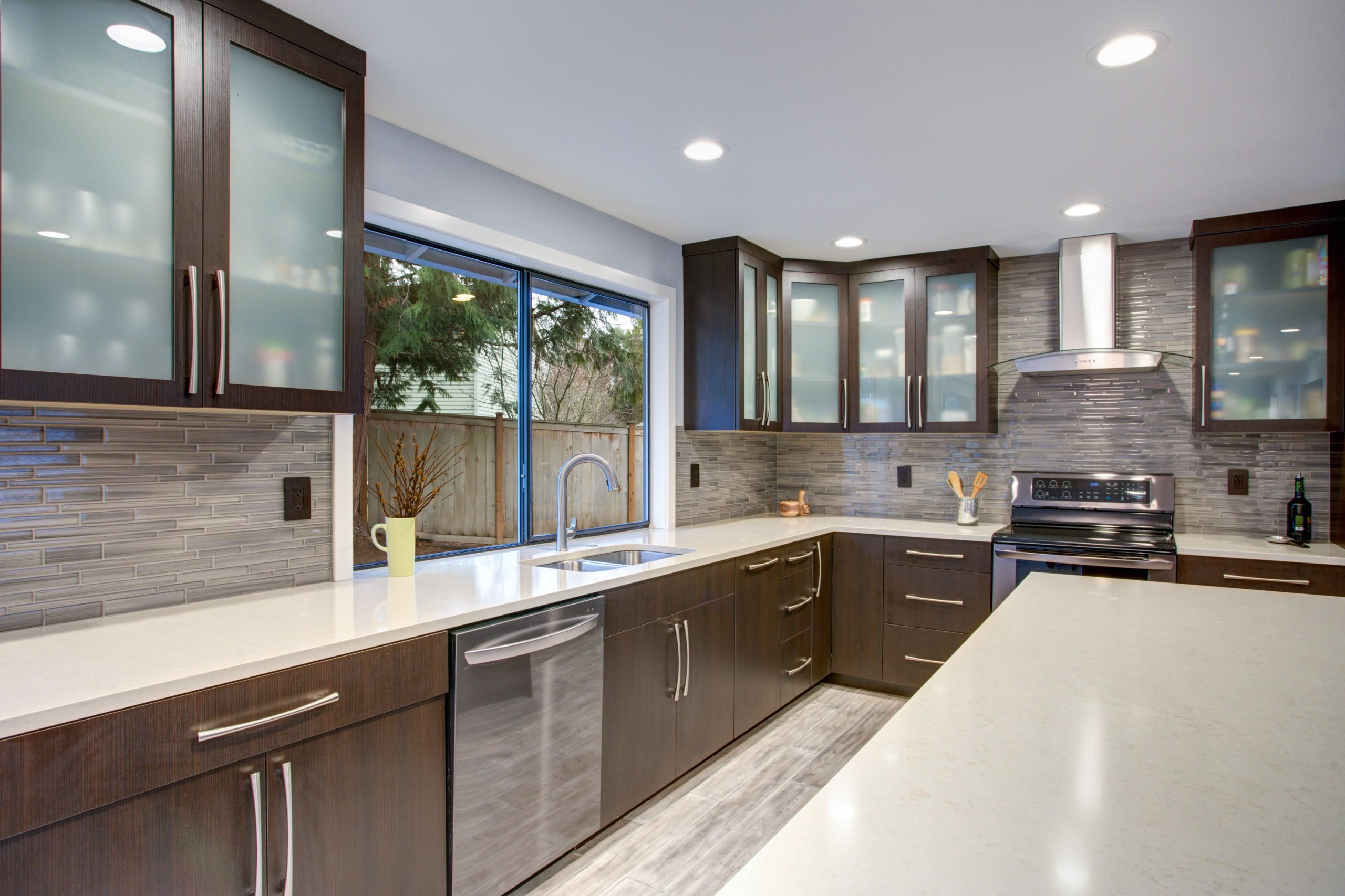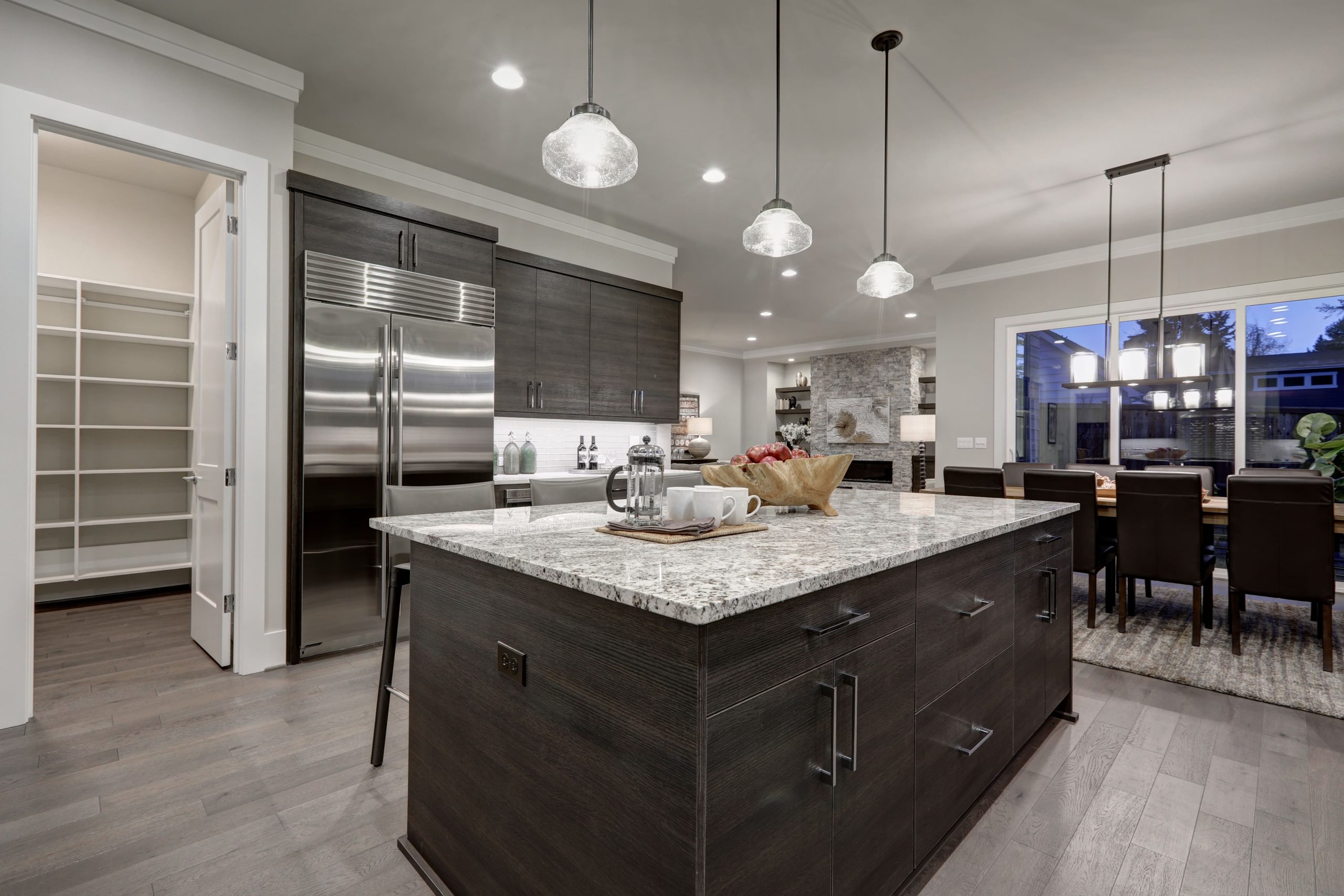The process of choosing the perfect countertops for your home or kitchen renovation project can be overwhelming. With so many options available in the market, it’s important to make an informed decision that suits your needs and preferences. This comprehensive guide will walk you through the key factors to consider when selecting countertops, ensuring that you find the ideal match for your space.
One of the first decisions you’ll need to make is the material of your countertops. There are various options to choose from, including granite, quartz, marble, laminate, and concrete. Each material has its own pros and cons, so it’s important to understand their characteristics before making a choice. Granite, for example, is known for its durability and natural beauty, while quartz offers a wide range of colors and patterns. Marble, on the other hand, exudes elegance but requires more maintenance. Consider factors such as appearance, durability, and maintenance requirements when selecting the material that suits your lifestyle.
Once you’ve decided on the material, it’s time to consider the style and design of your countertops. There are different styles available, ranging from traditional to contemporary and modern. Think about the overall aesthetic of your space and choose a style that complements it. Additionally, consider the color selection for your countertops. Take into account factors such as existing decor, lighting, and personal preferences to find the right color that enhances the overall look of your space.
Material Options
When it comes to choosing the perfect countertops for your home or kitchen renovation project, exploring the various material options available in the market is essential. Each material has its own unique characteristics, pros, and cons that you should consider before making a decision.

Granite countertops are a popular choice due to their durability and natural beauty. They are resistant to heat, scratches, and stains, making them ideal for busy kitchens. Quartz countertops, on the other hand, offer a wider range of colors and patterns, as they are engineered using natural quartz combined with resins. They are also highly durable and low-maintenance.
Marble countertops exude elegance and luxury, but they require more care and maintenance compared to other materials. They are prone to staining and etching, so regular sealing is necessary. Laminate countertops are an affordable option that comes in a variety of colors and designs, but they are not as durable as natural stone materials.
Concrete countertops have gained popularity in recent years due to their versatility and customizable nature. They can be molded into various shapes and sizes and can be stained or textured to achieve a unique look. However, they are prone to cracking and require regular sealing.
When considering the material options for your countertops, it’s important to weigh the pros and cons of each material based on your specific needs and preferences. Consider factors such as durability, maintenance requirements, aesthetics, and budget to make an informed decision.
Style and Design
When it comes to choosing the perfect countertops for your home or kitchen renovation project, style and design play a crucial role. The right countertop can enhance the overall aesthetic of your space and create a cohesive look that reflects your personal taste. Here, we will explore different countertop styles and designs, ranging from traditional to contemporary and modern options, helping you find the perfect match for your unique aesthetic.
Traditional countertops exude timeless elegance and charm. They often feature intricate patterns, ornate edges, and warm, earthy tones. If you prefer a classic and sophisticated look, traditional countertops are an excellent choice. On the other hand, contemporary countertops offer a sleek and minimalist design. They are characterized by clean lines, bold colors, and a seamless appearance. If you are drawn to a more modern and streamlined aesthetic, contemporary countertops will be the perfect fit.
Modern countertops embrace innovation and experimentation. They often feature unconventional materials, unique shapes, and vibrant colors. If you want to make a bold statement and showcase your individuality, modern countertops are the way to go. Remember, the style and design of your countertops should complement the overall theme of your space. Consider the existing decor, color palette, and architectural elements to ensure a cohesive and harmonious look.
Additionally, you can create a list of key points to summarize the content:
- Traditional countertops: timeless elegance and charm
- Contemporary countertops: sleek and minimalist design
- Modern countertops: innovation and experimentation
- Consider existing decor, color palette, and architectural elements
Color Selection
Choosing the right color for your countertops is an important decision that can greatly impact the overall look and feel of your space. When considering color options, it is essential to take into account factors such as existing decor, lighting, and personal preferences.

Existing Decor: The color of your countertops should complement the existing decor in your home or kitchen. Consider the color scheme of your walls, cabinets, and flooring. If you have a neutral color palette, you have the freedom to choose countertops in bold and vibrant colors. However, if your decor is already colorful, it might be best to opt for countertops in more neutral tones to create a balanced and cohesive look.
Lighting: Lighting plays a crucial role in how colors appear in your space. Natural light and artificial lighting can have different effects on the color of your countertops. It is recommended to bring samples of different countertop colors to your space and observe how they look under different lighting conditions. This will help you make an informed decision and ensure that the color you choose looks great in all lighting situations.
Personal Preferences: Ultimately, your personal preferences should guide your color selection process. Think about the emotions and atmosphere you want to create in your space. Do you prefer a calming and serene environment? In that case, consider lighter shades such as white, beige, or pastel colors. If you want to make a bold statement, darker shades like black or deep blue can add drama and sophistication to your kitchen or bathroom.
Remember, choosing the right color for your countertops is a personal decision, and there are no right or wrong choices. It’s all about finding a color that reflects your style and enhances the overall aesthetic of your space.
Pattern and Texture
Pattern and Texture
When it comes to countertop design, patterns and textures play a crucial role in creating a visually appealing and unique look. Understanding the impact of different patterns and textures will help you make an informed decision and choose the perfect option for your countertops.
One popular choice for countertops is solid colors. These provide a clean and sleek appearance, adding a touch of modernity to your space. Solid colors work well in contemporary and minimalist designs, as they create a seamless and uniform look.
On the other hand, if you prefer a more intricate and detailed look, countertops with veining and textured surfaces are an excellent choice. Veining mimics the natural patterns found in materials like marble and granite, adding elegance and sophistication to your kitchen or bathroom. Textured surfaces, on the other hand, offer a tactile experience and can add depth and visual interest to your countertops.
When selecting patterns and textures, consider the overall aesthetic of your space. If you have a bold and vibrant decor, you may opt for countertops with more pronounced patterns. However, if your space has a more subdued and neutral color scheme, a simpler pattern or texture can create a subtle yet elegant look.
Additionally, patterns and textures can also help camouflage any imperfections or stains that may occur over time. Opting for countertops with a busy pattern or textured surface can help conceal minor scratches or marks, ensuring your countertops continue to look pristine for years to come.
In summary, patterns and textures are essential elements in countertop design. Whether you choose solid colors, veining, or textured surfaces, selecting the right pattern and texture will enhance the overall look and feel of your space, adding personality and style.
Edge Profiles
When it comes to choosing the perfect countertops, one important aspect to consider is the edge profile. The edge profile refers to the shape and design of the edge of the countertop, and it can greatly impact the overall look and functionality of your countertops.
There are several edge profiles available in the market, each with its own unique characteristics. Let’s explore some popular options:
- Beveled: This edge profile features a slanted edge that adds a touch of elegance to your countertops. It is a versatile option that works well with both traditional and contemporary designs.
- Bullnose: The bullnose edge profile is a classic choice that features a rounded edge. It is smooth and seamless, making it easy to clean and maintain.
- Ogee: If you’re looking for a more ornate and decorative edge profile, the ogee is a great option. It has an S-shaped curve that adds a touch of sophistication to your countertops.
When choosing the edge profile for your countertops, it’s important to consider your personal style and the overall aesthetic of your space. You want to select an edge profile that complements the design of your kitchen or bathroom and enhances the functionality of the countertop.
Additionally, it’s worth noting that different edge profiles may have varying levels of maintenance requirements. Some profiles may be more prone to chipping or damage, while others are more durable and easy to clean. Consider your lifestyle and how much time you’re willing to invest in maintaining your countertops when making your decision.
Ultimately, the edge profile you choose should be a reflection of your personal style and preferences. It should seamlessly blend with the overall design of your space and enhance the functionality of your countertops. Take the time to explore the various edge profiles available and choose the one that best suits your needs.
Maintenance and Durability
Maintenance and durability are crucial factors to consider when choosing the perfect countertops for your home or kitchen renovation project. By understanding how to properly maintain and care for different countertop materials, you can ensure their longevity and durability, ultimately saving you time and money in the long run.
Here are some tips to help you maintain and care for various countertop materials:
- Granite: Granite countertops are known for their durability, but they require regular sealing to prevent stains. Clean them with a mild soap and warm water solution and avoid using abrasive cleaners.
- Quartz: Quartz countertops are low-maintenance and resistant to stains and scratches. Simply clean them with a mild detergent and a soft cloth or sponge.
- Marble: Marble countertops are elegant but require more care. Avoid using acidic or abrasive cleaners, as they can damage the surface. Clean them with a pH-neutral cleaner and wipe up spills immediately.
- Laminate: Laminate countertops are easy to maintain. Clean them with a mild soap and warm water solution and avoid using abrasive cleaners or scrub brushes.
- Concrete: Concrete countertops are durable but need to be sealed regularly to prevent stains. Clean them with a pH-neutral cleaner and avoid using abrasive cleaners.
When choosing a countertop material, consider your lifestyle and how much time and effort you are willing to invest in maintenance. If you prefer a low-maintenance option, quartz or laminate countertops may be the best choice for you.
Remember to follow the manufacturer’s guidelines for cleaning and maintenance to ensure the longevity and durability of your countertops. By taking proper care of your countertops, you can enjoy their beauty and functionality for years to come.
Budget Considerations
When it comes to choosing the perfect countertops for your home or kitchen renovation project, it’s important to consider your budget. Understanding the cost implications of different countertop materials and designs will help you find options that align with your financial plan without compromising on quality and style.

- Countertop Materials: The material you choose for your countertops can significantly impact the cost. Granite and quartz are generally more expensive options, while laminate and concrete tend to be more budget-friendly. Consider the durability, maintenance requirements, and aesthetic appeal of each material before making a decision.
- Design and Complexity: The design and complexity of your countertops can also affect the overall cost. Intricate patterns, custom shapes, and unique edge profiles may require additional labor and materials, increasing the price. Keep in mind that simpler designs and standard edge profiles can help you stay within your budget.
- Size and Square Footage: The size and square footage of your countertop area will impact the cost as well. Larger areas will require more materials, which can drive up the price. Consider the dimensions of your space and consult with professionals to get accurate cost estimates.
- Installation: The installation process can vary depending on the material and complexity of your countertops. DIY options may save you money, but professional installation ensures proper fitting and reduces the risk of costly mistakes. Evaluate your skills and resources before deciding on the installation method.
By considering these budget considerations, you can make an informed decision that meets your financial goals without compromising the quality and style of your countertops. Remember to research and compare prices, consult with professionals, and prioritize your needs and preferences to find the perfect balance between cost and value.
Installation Process
Installation Process
When it comes to installing countertops, there are two main options to consider: DIY installation or hiring a professional. Each option has its own advantages and considerations, so it’s important to understand the installation process for different countertop materials before making a decision.
If you choose to go the DIY route, it’s crucial to have the necessary skills, tools, and knowledge to ensure a successful installation. DIY installation can save you money, but it requires careful planning and precision. You will need to measure and cut the countertop material accurately, ensuring a proper fit. Additionally, you’ll need to have the necessary tools, such as saws, drills, and adhesives, to complete the installation.
On the other hand, hiring a professional for countertop installation can provide peace of mind and ensure a high-quality result. Professionals have the expertise and experience to handle the installation process efficiently and effectively. They will take accurate measurements, handle any necessary adjustments, and ensure proper sealing and finishing.
It’s also important to consider the specific requirements of the countertop material you choose. Some materials, such as granite or quartz, may require specialized equipment or techniques for installation. In such cases, it’s often recommended to hire a professional to ensure the best outcome.
Before making a decision, consider your own skills, time availability, and budget. DIY installation can be a rewarding experience if you have the necessary skills and are willing to invest the time and effort. However, if you prefer a hassle-free and professionally finished result, hiring a professional may be the best option for you.
Ultimately, the installation process is a crucial step in achieving the perfect countertops for your home or kitchen renovation project. By understanding the options available and making an informed decision, you can ensure a smooth and successful installation that meets your expectations.
Additional Features
When it comes to choosing the perfect countertops for your home or kitchen renovation project, it’s important to consider not only the material and design but also the additional features and customization options available. These features can enhance the functionality and convenience of your countertops, making them even more valuable in your daily life.
One popular additional feature for countertops is the integration of sinks. Integrated sinks are seamlessly incorporated into the countertop, creating a sleek and streamlined look. This not only adds to the aesthetic appeal but also makes cleaning and maintenance easier, as there are no seams or edges where dirt and grime can accumulate.
Another customization option to consider is the addition of backsplashes. A backsplash is a protective wall covering that extends from the countertop to the bottom of the upper cabinets. It not only adds a decorative element to your kitchen but also protects the walls from water, oil, and other kitchen splatters. Backsplashes can be made from a variety of materials, such as tile, stone, or even the same material as your countertops, creating a cohesive and visually appealing look.
Built-in appliances are also a popular choice for countertop customization. These appliances, such as built-in microwaves, ovens, or even stovetops, are seamlessly integrated into the countertop surface, creating a streamlined and efficient workspace. This not only saves valuable counter space but also adds to the overall functionality of your kitchen.
When exploring additional features and customization options for your countertops, it’s important to consider your specific needs and preferences. Integrated sinks, backsplashes, and built-in appliances can enhance the functionality and convenience of your countertops, making your kitchen a more efficient and enjoyable space to work in.
